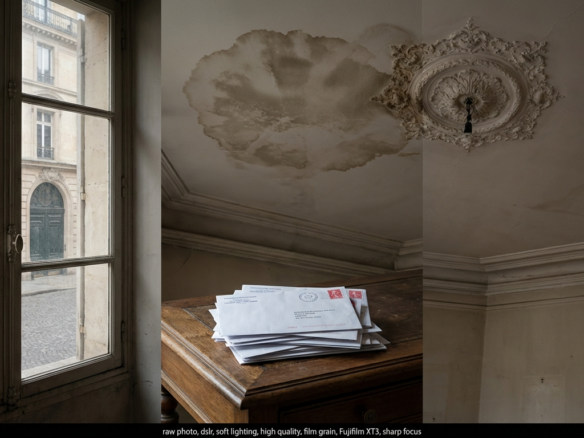Crete, Greece’s largest island and a Mediterranean jewel, is experiencing an unprecedented transformation in its property market. The explosive growth of short-term rentals has created a ripple effect that’s reshaping the island’s real estate landscape, attracting both domestic and international investors who recognize the lucrative opportunities this trend presents. From charming village properties to luxury coastal villas, the demand for vacation rental investments has reached new heights, fundamentally altering property values across the island.
Get 50% OFF!
Subscribe to our newsletter and enjoy a 50% discount on all listing packages, no strings attached!

Crete’s Short-Term Rental Market Explodes
The short-term rental sector in Crete has witnessed remarkable expansion over the past few years, with platforms like Airbnb and Booking.com reporting substantial increases in property listings across the island. This growth trajectory has been particularly pronounced in popular destinations such as Chania, Heraklion, and Rethymno, where traditional hotels now compete with an ever-growing inventory of privately-owned vacation rentals. The shift represents a fundamental change in how visitors experience Crete, moving away from conventional hospitality models toward more personalized, home-like accommodations.
Property owners have quickly adapted to capitalize on this trend, converting traditional long-term rental properties and even primary residences into short-term vacation rentals. The appeal is undeniable when considering the financial returns: a well-positioned property in a desirable location can generate significantly higher income through short-term rentals compared to traditional long-term leasing arrangements. This economic incentive has created a domino effect, encouraging more property owners to enter the market and driving increased competition for suitable rental properties.
Property Values Surge Across the Island
The surge in short-term rental demand has created upward pressure on property prices throughout Crete, with some areas experiencing double-digit appreciation rates over the past two years. Coastal properties, particularly those within walking distance of beaches or offering sea views, have seen the most dramatic price increases as investors recognize their premium rental potential. Properties in traditional villages that were once considered less desirable have also experienced significant value appreciation as tourists seek authentic Greek experiences away from crowded resort areas.
Market data indicates that properties suitable for short-term rentals now command premium prices, often selling 15-25% above comparable properties without rental potential. This price differential reflects the investment community’s confidence in the sustainability of Crete’s tourism sector and the ongoing profitability of vacation rentals. The trend has been particularly pronounced in properties featuring traditional Cretan architecture, private pools, or unique amenities that photograph well for online marketing platforms.
Investors Flock to Crete’s Booming Market
International investors have taken notice of Crete’s promising rental market dynamics, with significant capital flowing into the island from various European countries, the United States, and other international markets. These investors are attracted not only by the potential rental yields but also by Greece’s Golden Visa program, which offers residency benefits to non-EU citizens who invest a minimum of €250,000 in Greek real estate. The combination of investment opportunity and lifestyle benefits has proven particularly appealing to investors seeking diversification in Mediterranean markets.
Local investment activity has also intensified, with Greek investors redirecting capital from other asset classes into Crete’s rental property market. Many of these domestic investors possess intimate knowledge of local markets, seasonal patterns, and regulatory requirements, giving them competitive advantages in identifying and managing profitable rental properties. The result is a highly active market where quality properties often receive multiple offers, sometimes selling above asking prices in desirable locations.
Tourism Growth Fuels Real Estate Demand
Crete’s tourism industry continues to demonstrate robust growth, with visitor arrivals consistently exceeding previous records and extending beyond traditional summer seasons. This sustained tourism growth provides the fundamental demand that supports the short-term rental market, as travelers increasingly prefer the flexibility and value proposition offered by vacation rentals over traditional hotel accommodations. The island’s diverse attractions, from ancient archaeological sites to pristine beaches and mountain villages, ensure a steady stream of visitors throughout much of the year.
The diversification of Crete’s tourism market has also contributed to rental property demand, with the island attracting not only leisure travelers but also remote workers, digital nomads, and extended-stay visitors seeking temporary Mediterranean bases. This expanded visitor demographic has created demand for different property types, from urban apartments with high-speed internet connectivity to rural retreats offering tranquility and natural beauty. The result is a more resilient rental market that’s less dependent on traditional seasonal tourism patterns.
Local Impact of the Rental Property Rush
The transformation of Crete’s rental market has generated mixed reactions among local communities, with some residents benefiting from increased property values and economic opportunities while others express concerns about housing affordability and community character changes. Property owners who have successfully transitioned to short-term rentals often report substantial income increases, enabling them to maintain and improve their properties while contributing to local economic activity through increased tourism spending.
However, the rapid growth of short-term rentals has also created challenges, particularly in popular areas where the conversion of long-term rental properties has reduced available housing for local residents. Some municipalities have begun implementing regulations to balance tourism benefits with community needs, including licensing requirements and limitations on short-term rental concentrations in certain neighborhoods. These regulatory developments represent important considerations for current and prospective investors as local authorities work to manage the sustainable growth of the short-term rental sector while preserving Crete’s authentic character and ensuring adequate housing availability for residents.
Crete’s short-term rental boom represents a significant shift in the island’s real estate dynamics, creating opportunities and challenges that will likely shape its property market for years to come. The combination of strong tourism fundamentals, attractive investment returns, and Greece’s favorable investment policies has created a perfect storm driving property values upward across the island. As this market continues to evolve, success will increasingly depend on understanding local regulations, seasonal patterns, and the changing preferences of international travelers who choose Crete as their Mediterranean destination.





Join The Discussion